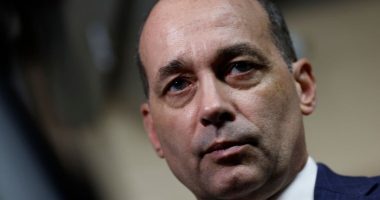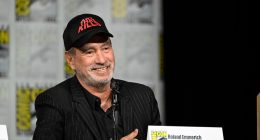Sometimes, you put a tweet out there (I refuse to call it a post), and you can tell right away that you’ve touched a nerve. Last week, I tweeted the following: “What do Boeing, the collapsed bridge in Baltimore, shortages of critical pharmaceuticals, Donald Trump’s ridiculous new Spac, and an unprecedented amount of speculation and concentration in stock markets have in common? We need more real engineering, and less of the financial kind.”
I immediately received numerous responses and reposts and thumbs ups from people who see the connections here. I could have added any number of other things to this list, from America’s difficulties in transporting its own liquefied natural gas between domestic ports because we can’t build big ships in the US, to the fact that US-China decoupling is an impossibility because most American corporations have no idea who’s actually making their products (or how) once you go a couple of layers down their supply chains. Or, on the financial side, the fact that labour unions are having to take charge of safety and capital investment at many companies (think Boeing, or big US steelworks, but there are dozens of others I could name), since the owners of capital aren’t doing these things themselves because they are disincentivised from doing so by market short-termism.
Obviously, I’m rather passionate about all of this, as the failed assumptions of the Washington consensus and financialisation of the US economy — in which we’ve gone from making things to leveraging them — is at the heart of my body of work as a journalist.
But at the risk of being overly optimistic (I’ll admit I’ve thought we were at peak financialisation for seven years, and I’m always surprised there is further to go), I do think we are at a tipping point. One of the signs is that even beneficiaries of the old paradigm are beginning to question it. Last week, at a party on the Upper East Side, I ran into a reasonably well-known former public official and Goldman Sachs partner, one of a group of men (they are always men) that I’d consider to be statesmen-financiers. I’d put this person in the same basket as former US ambassador to France Felix Rohatyn or ex-US deputy secretary of state John Whitehead, people who do well for themselves in our particularly rapacious system, but then take the last part of their careers to give back as true public servants.
This person had seen my tweet, and read my columns, and told me that they had come to see things more my way, and that despite being a Chicago school proponent, they had to admit that more cheap TVs from Asia didn’t make up for job losses at home. Well, good. Glad to hear it. I was at another party the day before for a big new book, where a well-known former journalist said to me with an absolute lack of irony: “You know, Rana, people like us that have benefited from the last 40 years of globalisation, we think it’s great. But a lot of people in rural areas don’t.” Huh, that hadn’t occurred to me.
Anyway, Peter, I clearly have a unified field theory through which I see all the current headlines that I laid out above. We have been harvesting the rents of the economy that we built up until the 1980s for the past half a century, and now, we are seeing the fractures. But I know that you have a different worldview — so what, if any, connective tissue do you see in these headlines?
Recommended reading
-
Nikole Hannah-Jones’ New York Times magazine cover essay on the history of how America legislates around race and colour-blindness was powerful, fascinating and informative. I find it to be required reading for understanding our current debate over identity politics and affirmative action. And yet, I came away feeling that I fundamentally disagree with her position — I think that reparations, for example, would decrease rather than increase social cohesion.
-
And please have a look at my Monday column, which calls out the bizarre hypocrisy of China’s complaints about the US’s Inflation Reduction Act at the WTO.
Peter Spiegel responds
Rana, I must say those are a whole lot of events for a single organising theory to shoulder, and as you guessed, the sceptical journalist in me always kicks in when I see attempts to explain disparate incidents by relying on broader societal trends.
The thing I think you have right, though, is that there has always been a central tension in modern capitalism (as well as modern government procurement): producers try to make the best possible product at the lowest possible price. As a frequent passenger of Boeing planes and an occasional driver over the Francis Scott Key Bridge, I’ve always hoped that the quality of the product comes first for engineering-centric companies, and that cost control is the natural byproduct of efficiencies gained over time rather than a gradual degradation of what is offered to market.
In critical industries, like aviation and civil engineering, we have a regulatory layer on top of the normal quality/cost trade-off to ensure that safety is not compromised in the pursuit of profits. But sometimes corporate culture goes bad, prioritising sales and marketing over engineering and safety, and regulators fail in their duty to catch it. That’s when door plugs fly off of 737s high above Portland.
Can something broader be said about the state of our society because Boeing is facing a safety crisis, and American infrastructure is crumbling? I think that’s a stretch. For every Boeing or Key Bridge, I think I could cite an engineering triumph that is having an equally important positive impact on American life: electric cars, for instance, or 3D printing. I’m not someone prone to jump on the Elon Musk hype machine, but I think it’s fair to say that both Tesla and SpaceX are engineering firms that disprove your thesis. They both make money by producing excellence.
You’ve thrown a lot of financial speculation into your theory — including the Trump Spac and the advance of Wall Street’s Magnificent Seven. I view the Trump Spac as a garden variety speculative bubble, an unfortunate feature of financial markets that stretches back to Dutch Tulip mania in the 1630s. In other words, not something particular to our place and time.
What I am more sympathetic to, however, is your argument — contained in several of your books — that the financialisation of everything is warping American capitalism. I don’t think the Magnificent Seven is an example of that, to be honest; many of these companies are poised to become leaders in what many smarter than I believe is an artificial intelligence revolution, so they may well deserve their high valuation.
But the point of our capital markets is to funnel investment into innovations that better society as a whole. When they become mere vehicles for Wall Street to exact rents as intermediaries between investors and inventors, then there’s a problem. The sheer volume of financiers now employed — and the proliferation of clever financial engineering they dream up — tells me that in this one part of your argument, you might be on to something. Not an organising theory, but it’s something!
Your feedback
We’d love to hear from you. You can email the team on swampnotes@ft.com, contact Peter on peter.spiegel@ft.com and Rana on rana.foroohar@ft.com, and follow them on X at @RanaForoohar and @SpiegelPeter. We may feature an excerpt of your response in the next newsletter
Recommended newsletters for you
Unhedged — Robert Armstrong dissects the most important market trends and discusses how Wall Street’s best minds respond to them. Sign up here
The Lex Newsletter — Lex is the FT’s incisive daily column on investment. Local and global trends from expert writers in four great financial centres. Sign up here
Also Read More: World News | Entertainment News | Celeb News








